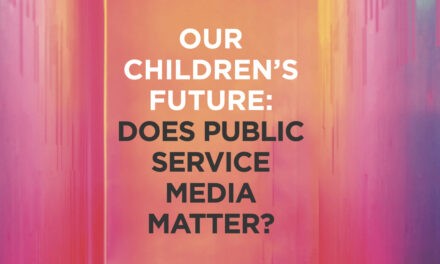I’ve just returned from Málaga and the European Communication and Research Association’s Television Studies section’s annual conference. A mouthful to type, if you get my drift. It was ably run by a team led by Juan Francisco Gutiérrez Lozano, author of the excellent history of regional television, El Encendido Analógico. The three days featured brilliant exponents in the field—both those who helped to create it, and those who are remaking it. I know very few of them, which made it all the more exciting to be there.
 I think it’s the first scholarly event solely dedicated to TV that I’ve attended since the late, lamented International Television Studies Conference, whose last instalment was in 1991—to which one can only say, “You need to get out more.”
I think it’s the first scholarly event solely dedicated to TV that I’ve attended since the late, lamented International Television Studies Conference, whose last instalment was in 1991—to which one can only say, “You need to get out more.”
Some elements were similar—dominated by white folks; everyone had to master English in order to speak; friendly and open; fun and smart people; I want to be more like them and less like myself.
What I write below is not a comment on Málaga—these ideas emerged before the conference. I was stimulated to produce a short meta-piece on television studies because of the event, but not in reaction to it.
I wanted to reflect on the state of the field today, in part because I am preparing a revised edition of Television: Critical Concepts in Media and Cultural Studies, a multi-volume greatest hits of journal articles in English that appeared as an anthology in 2003. £970.00 gets you over 2000 pages of reading for the holiday season.
The things that seem different to me over the past twenty-five years, the period between the two conferences, are twofold. Firstly, that TV studies feels apolitical today in contrast with 1991. And secondly, that many things seem to have sprung from bench science, AKA grant-getting.
Because I lived most of the time between then and now in the US, but working outside the welfare-warfare nexus of Washington’s grant system, I’m unused to this sort of thing.
I’m familiar with big research projects, where people from around the world write things that fascinate and animate them for political reasons, and big, influential books are produced. I am less au fait with the endless whirl of applying for grants, which has become almost an end in itself for people working in Australia and western Europe. Without these grants, many diligent, competent researchers would not make a living; and others, in more secure employment, would not have the time to study. But I see these people applying and succeeding—nice—then doing the type of work that their funding bodies want.
That’s not the warfare-welfare nexus of US science and social science. But it is the rather apolitical, administrative research of such topics as: how a small population can develop a gaming industry; how to use new technologies to engage people; what is the map of co-productions; how much money ‘y’ country makes from overseas TV sales; how executives of multinational corporations function; how do YouTube stars emerge; and what are the difficulties faced by archivists?
Don’t get me wrong—I appreciate the interest in all the above topics. And they have important political aspects. But those elements are largely silent in publications produced about them. I surmise that this may be both because people diligently report on their sponsored research largely in the terms under which they applied for funding (i.e., minus politics) and because they structure their conclusions based on the need for further research (i.e., minus politics).
There are some important exceptions to this concern—mostly to do with the representation on- and off-screen of certain social identities. But apart from that, I read little in television studies about the basic political-economic exploitation of labor; the dominant structures of ownership and control; the regulatory deals that privilege oligopolies; the representational annihilation or distortion of minorities (think Polish and Colombian residents’ absence from British TV drama); the exploitation of tax breaks by indolent local producers and eagle-eyed Hollywood ones in search of free money (loans with no interest or investment without equity); the social relations of technological innovation; and the environmental impact of making, watching, and disposing of television.
These are matters that you might find covered in Screen International, The Economist, Wired magazine, Hollywood Reporter, Television Business International, or the Financial Times—none of them exactly claxons of socialism.
Am I right? I’ve not based these comments on looking through the relevant scholarly journals or books in a systematic way—this is a provocative impression. I’m happy to be proven wrong. It’s just that when I look at the current context, it feels very different from the febrile commitment to social and cultural justice that dynamically animated TV studies in its origins and growth.
Toby Miller is Emeritus Distinguished Professor at the University of California, Riverside, the Sir Walter Murdoch Professor of Cultural Policy Studies at Murdoch University, Profesor Invitado at the Universidad del Norte, Professor of Journalism, Media and Cultural Studies at Cardiff University/Prifysgol Caerdydd and Director of the Institute for Media & Creative Industries at Loughborough University in London. His adventures can be scrutinized at www.tobymiller.org.





